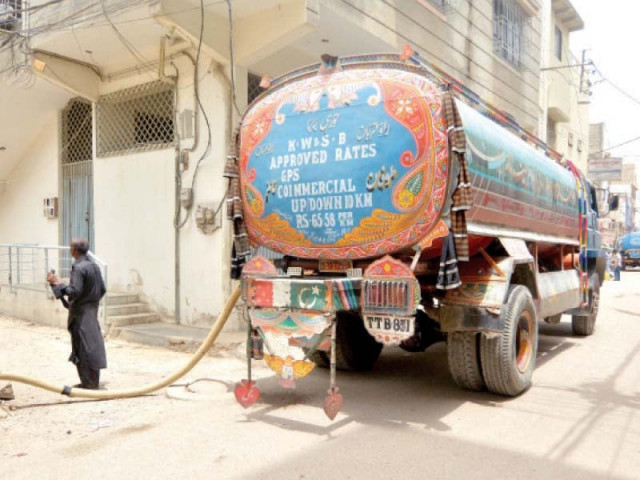Sindh’s water woes run deeper
Double whammy of climate change and pollution threatens the province with impending water crisis

The province of Sindh appears to have been met with a double-pronged water crisis. On one end, there is a growing shortfall in the Indus River system which has brought the region on the brink of running dry. On the other end, it faces contamination of existing water from irresponsible disposal of industrial and sewage waste into the waterbodies hydrating the province. While the water shortage in the Indus system can be considered a product of climate change, the latter issue is more of an administrative concern, the onus of which rests upon the provincial government.
According to the last Environment Audit Report of the Auditor General of Pakistan, pollutants enter the Indus basin from different locations in the province; including municipal, industrial and agricultural wastes from Punjab that eventually flows down to Guddu and Sukkur barrages. Municipal and industrial effluents of Sukkur and Rohri are also dumped into the river.
In addition to that, the report highlights that water from Manchar Lake that is rich in pesticides, nitrates chromium, lead, copper, zinc, hazardous medical waste, and discharge from power plants and coal industries also joins the river upstream of Kotri. While the main source of pollution downstream of Kotri tends to be untreated sewage and industrial effluents from urban areas of Hyderabad and Kotri.
It has also been observed that the Irrigation Department, which is required to ensure waste treatment, has been negligent of its duties, failing to set up any waste treatment plants in Sindh’s industrial zones.
Per the report, the water pollution in some areas is due to unchecked release of industrial pollutants from core industries like sugar mills. This, the report suggests, needs to be overseen by the Sindh government and curved through effective system of monitoring and protecting quality of surface and ground waters.
The water quality deterioration is largely caused by discharge of hazardous wastes. Main industrial estates of Karachi, kotri, Hyderabad and Sukkur are seen as the key culprit of increasing pollution in natural streams, rivers and the sea. “No strategies have been developed by the SIDA (Sindh Irrigation and Drainage Authority) for improvement of irrigation and drainage services, integrated water management, food protection, prevention of sea water intrusion, water distribution in times of drought and wetland management” the report emphasized.
Speaking in the regard, SIDA Chairperson Abdul Basit Soomro opined that the issues of discharge of waste water into fresh water and untreated industrial effluent exists in the province due to different reasons. He said that there are several residential schemes near canals that have been discharging their waste into the fresh water for decades. “They have no alternate drain for disposal of waste water,” he added.
He further claimed that the government had asked all factories to install treatment plants but they have still not implemented the government’s directives. Speaking further, the SIDA chair also accused the Water and Power Development Authority (WAPDA) for not completing its drainage project, Right Bank Outfall Drain (RBOD) despite years in the works.
“The early completion of the project will resolve disposal of industrial waste. Industrial waste is not only polluting surface water but also contaminating underground water in the province,” he commented, while speaking to The Express Tribune.
Published in The Express Tribune, June 8th, 2022.



















COMMENTS
Comments are moderated and generally will be posted if they are on-topic and not abusive.
For more information, please see our Comments FAQ